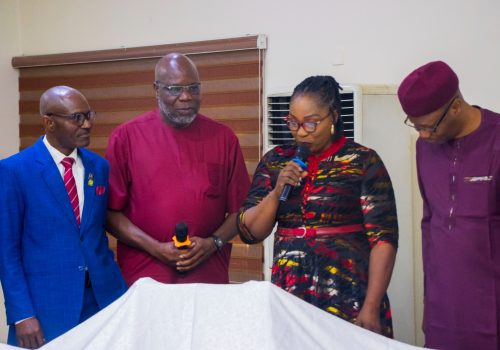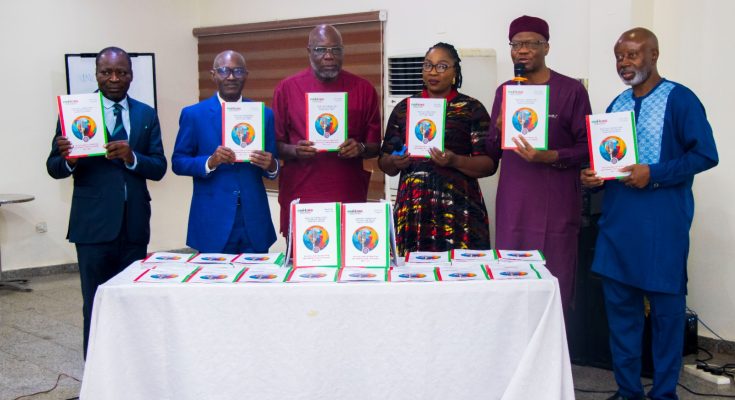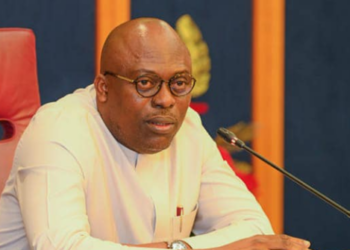Nigerians mostly stakeholders in leadership and governace issues have enjoined government at all levels, individuals and organisations to resist attempts to be aligned with corrupt practices in their day-to-day activities.
This is as Progressive Impact Organisation for Community Development (PRIMORG) presented a three-year project report to the public in Abuja.
PRIMORG, a non-governmental organisation based in Nigeria, was founded to mobilise citizens’ participation in good governance, promote uncommon integrity by public and private individuals and hold leaders to account.
The Executive Director of PRIMORG, Mr. Augustine Okhiria Agbonsuremi, in his presentation titled, “The Challenge of Corruption and Integrity Deficit in Nigeria”, spoke extensively on the need for integrity to be the watchword of institutions including private and government establishments.
He said, “I define integrity as doing the right thing wven when no one is there…The problem of corruption and the dearth of integrity in Nigerian society are undoubtedly some of the major hindrances to national development since independence.
“Regrettably, corruption runs through every level of the Nigerian government. From considerable contract fraud at the top through petty bribery, money laundering schemes, embezzlement, and ghost workers’ syndrome. It is, however, estimated that corruption within the state apparatus costs the country billions of dollars annually.”
Talking about what PRIMORG stands for and the impact it has made in the past three years, Agbonsuremi said, “With support from the MacArthur Foundation, PRIMORG, in the last three years (2021 – 2024), ran a project titled “Strengthening Anti-Corruption And Accountability By Amplifying Corruption-Related Investigative Reports On Radio And Through Social Media.”
“The project was implemented around Nigeria’s North-Central Zone and executed through anti-corruption radio programmes: Public Conscience on Radio (PCR) and Radio Town Hall Meeting (RTHM), where issues of corruption reported by the media houses are raised and the authorities called to action.
“The team produced 123 live radio programmes and syndicated 369 episodes and another 492 repeat broadcasts by five radio stations in Abuja, FCT; Keffi, Nasarawa State; Ilorin, Kwara State; and Jos, Plateau State.
“PRIMORG tracked constituency Projects and held community meetings in the form of Radio Town Hall Meetings in FCT-Abuja, Lokoja in Kogi State, and Keffi in Nasarawa State.”
He then tasked the federal government to take strong lead in the anti-corruption fight by strengthening all existing anti-corruption mechanisms, organs, and institutions through proper funding and appropriate legislation.

The PRIMORG leader also advocated sustained support for anti-corruption agencies, the media, and civil society groups working working in the good governance, adding, “There is an urgent need to enact a law to strengthen the whistleblowing policy of the federal government. The continued absence of a law to protect whistleblowers impedes galvanising public support against corruption.
“The media and civil society space, which continues to shrink through the actions and inaction of the government, is unsafe for national development and, as such, must be nipped in the bud. The relevant portions of the law, which are open to abuse by officials and agencies of government, should immediately be expunged through an appropriate amendment.”
An erudite scholar, Professor Magdalene Igbolo, in a keynote address expressed dissatisfaction on what she described as the abuse of office/position by individuals and organisations in the country and posited that the constitution of any nation should be the guiding principle in the day-to-day activities for meaningful development.
While listing money laundering, bribery, nepotism among others as factors mitigating against anti-corruption fight in Nigeria, Prof. Igbolo, a lecturer with the University of Abuja said, “The whole anti-corruption crusade lacks sincerity, commitment… all we do is just to do because others are doing.
“Since early 2000s when EFCC and ICPC were established, no real progress has been made. It’s all about having agencies in existence, no country experiences meaningful development with such approach.
“That is why organisations like PRIMORG and similar organisations are trying to play the advocacy role, create awareness using the radio, television and other platforms and they need all the support.”
Others who spoke at the event including the Africa Director MacArthur Foundation, Kunle Shettima, a representative and Director Public Enlightenment of the Independent Corrupt Practices and Other Related Offences Commission (ICPC), Mr. Demola Bakare, commended PRIMORG for remaining focused and dedicated in its accountability drive towards ensuring a better society.
Highpoint of the event was the unveiling of a three-year report by PRIMORG.





